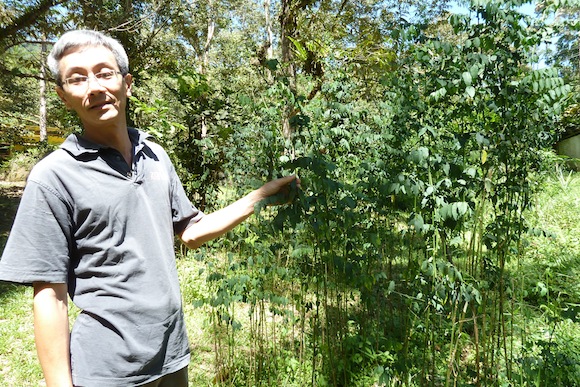
12 June 2013 by Adeline Lum CM-
Like how we obtain a higher degree of learning in colleges and universities, the orang asli also learn new and practical survival skills at Ladang MCare.
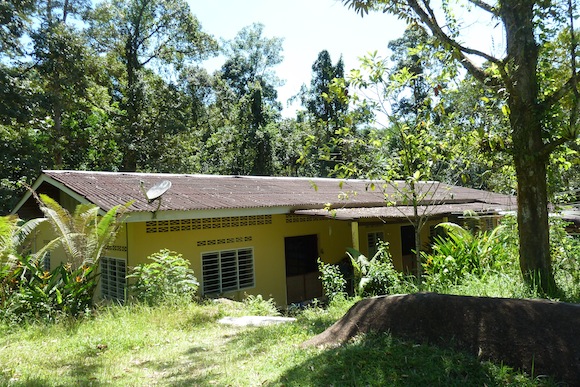
Located 10 km away from Chenderiang Town in Perak, Ladang MCare under Malaysian CARE is used as a community development and sustainable agriculture research, demonstration and training facility for the Orang Asli community.
“Here, the orang aslis feel more at home learning with practical hands-on methods in a forest setting instead of an urban classroom setting,” said Young Soon, Executive Director of Malaysian CARE.
And on this large 15-acre piece of land, many demo projects are going on such as sustainably planting crops for home consumption, growing cloned rubber trees and also agro-forestry. These are integrated with fish rearing and goat rearing to provide an additional income stream. Orang Asli farmers who come for training can then choose what’s suitable for their environment.

For instance, the FAITH (Food Always In The Home) garden grows ‘uncivilized vegetables’ vs. ‘civilized vegetables’.
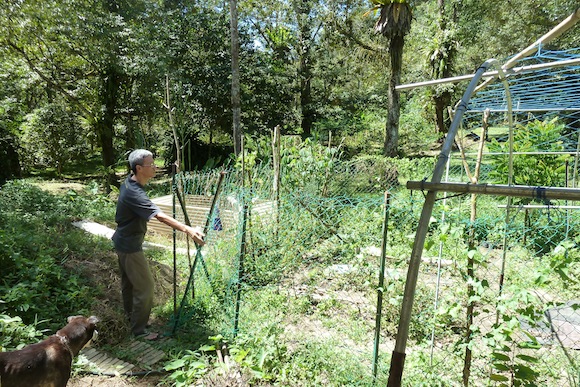
‘Civilized vegetables’ are crops that need lots of human tending and huge amounts of chemical fertilizer, pesticides and herbicides.
‘Uncivilized vegetables’ instead require minimum human attention, zero chemical inputs and is therefore healthier. Using kitchen waste such as fruit peels, vegetable leftovers and eggshells then mixed with goat manure, these are then composted and turned into organic fertilizer for the crops. ‘Uncivilized vegetables’ planted include local ginseng, pumpkin, okra, sweet potato, yam, bayam, paku, sayur manis, kacang botol and bitter gourd.
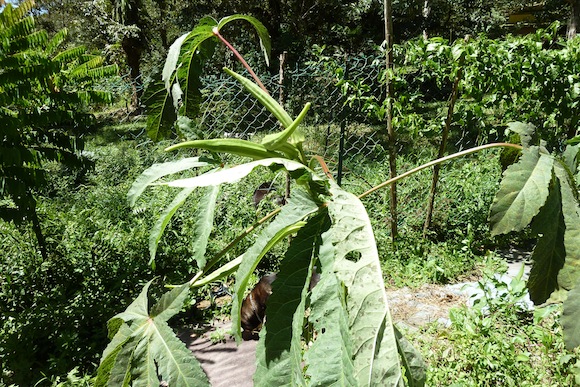

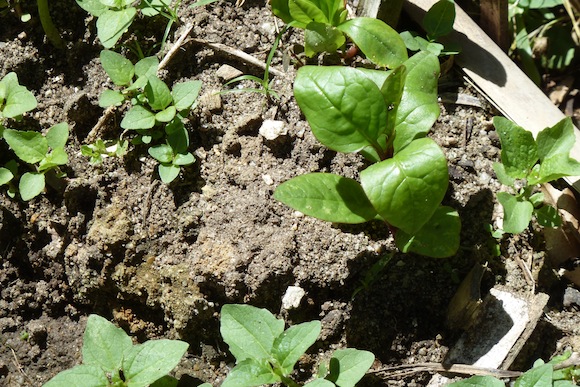
In the nursery nearby, young rubber tree saplings were grown till six feet tall in polybags. At a mature enough stage, the bud of a clone rubber tree will be grafted onto the sapling.
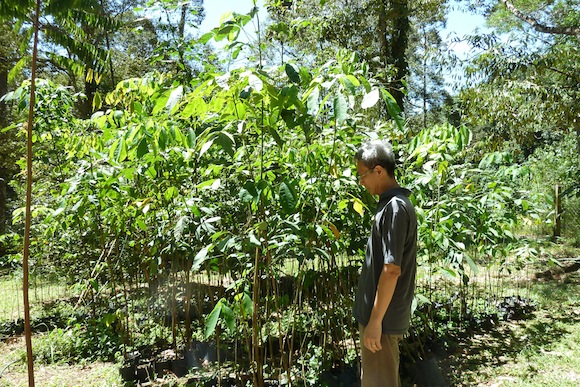
When the grafting is completed, the trunk above the graft is then cut to make way for the growth of a new cloned rubber tree with stronger roots, higher yield and shorter time to maturity.
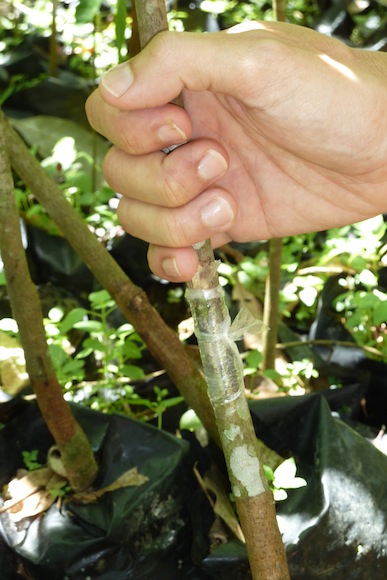
Another innovative demo project is cultivating vanilla, herbs, ginger, turmeric and other plants in forest conditions so that the orang asli can derive an income while preserving the natural forest.
“All these plants have commercial value. For example, when a vanilla plant matures and produces pods, they fetch a premium price in the market,” said Young Soon.
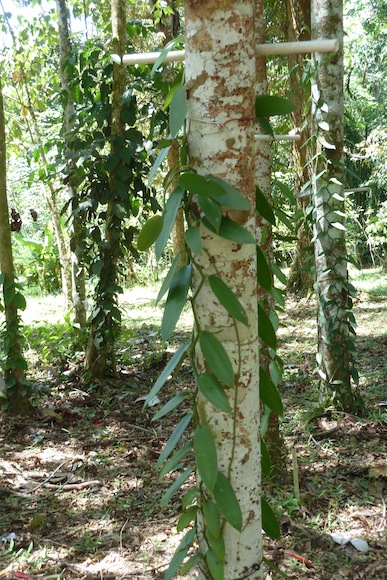
But why were oil palm trees not emphasized as a commercial crop for the orang asli? The reason is because oil palm requires expensive commercial fertilizers, roads, lorries and mainly male labor to carry the heavy fruit bunches. On the other hand, both men and women could easily tap rubber trees, collect the rubber in a container and then transport it on their motorcycles. It also requires less fertilizer to grow.
“If they are not keen on planting those crops, they can choose organically planted fruit trees such as banana, jackfruit, pineapple, salak, cempedak, limau and ciku, in addition to their traditional rice and tapioca,” said Young Soon.
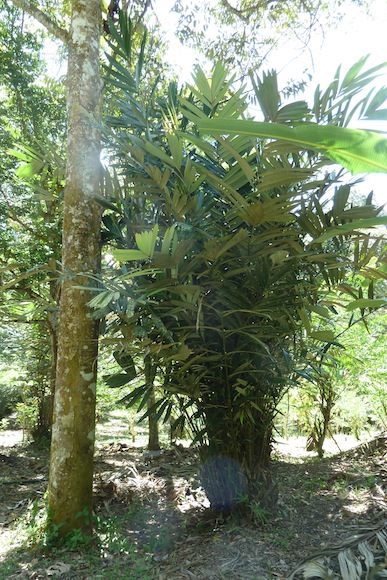
They also use a system called SALT (Sustainable Agriculture Land Technology). Multiple types of crops planted within the same area reduce pest damage because usually one specific pest attacks one species of plant.
Another problem that SALT mitigates is erosion resulting from clearing of land. Hence, nitrogen-fixing trees like the indigo fera tree are planted in rows to hold the soil and also nourish the soil.The leaves of the indigo fera are used as goat feed too.
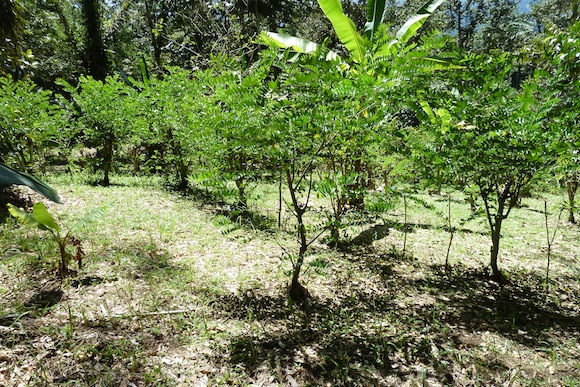
While nitrogen-fixing trees are excellent in replenishing a nutrient poor field, Ladang MCare also trains the orang asli to produce organic fertilizer by using earthworms to decompose farm waste.
“The fertilizer can be used for their own plants, and also to sell commercially,” said Young Soon.
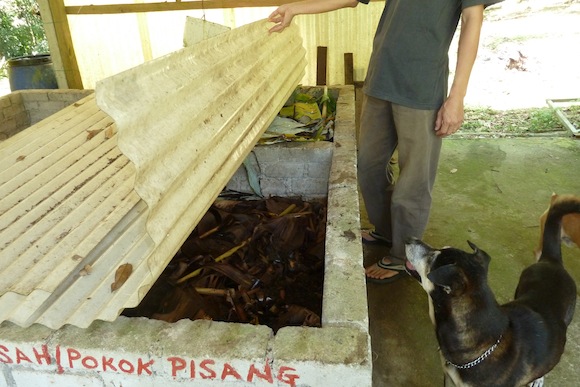
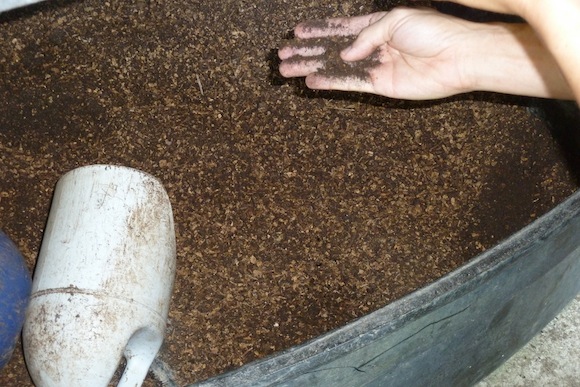
Koperasi Sengoi Pribumi Perak, introduced by Malaysian CARE but owned and managed by the orang asli, may in future collect all these organic produce and market it directly to consumers in the city for a better price.
In addition, the koperasi also functions as a bank for the orang asli for savings and loans to purchase seedlings for planting, fish rearing or goat rearing. They can also take a loan to pay for their children’s books and school fees.
Like in the urban sector, Ladang MCare’s sustainable agriculture works like investment plans. There is long-term investment like planting timber species and reaping the profit only 30 years later. There is also mid-term investment like planting rubber or vanilla which matures from 2 to 5 years while short-term investment includes cultivating bananas, pineapples, ginger, turmeric or herbs and reaping the profit between 6 to 12 months later.
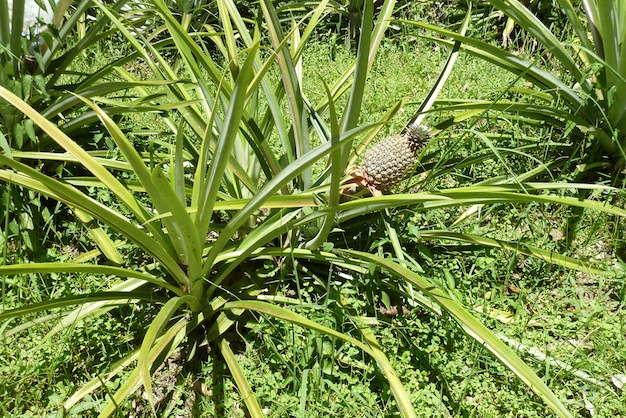
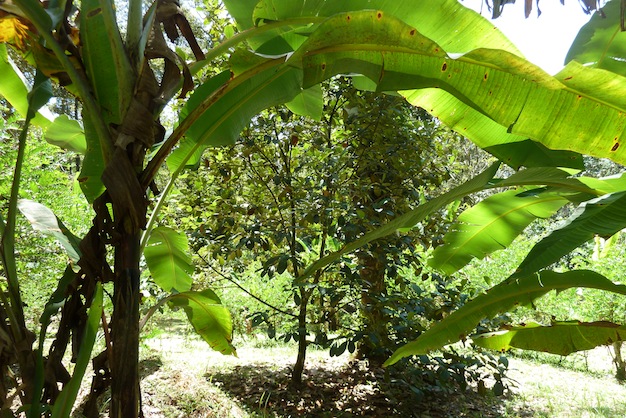
Not only does Malaysian CARE research about crops but they are integrated with fish and goat rearing providing an additional income for orang asli farmers.
For fish rearing, they are taught to route a stream into multiple ponds, so that fishes can be reared according to species and maturity.
“Smaller fish or fries would need to be separated from the bigger fish to prevent them being eaten. Hence, this would allow the smaller fish to grow to maturity in their pond,” said Young Soon.
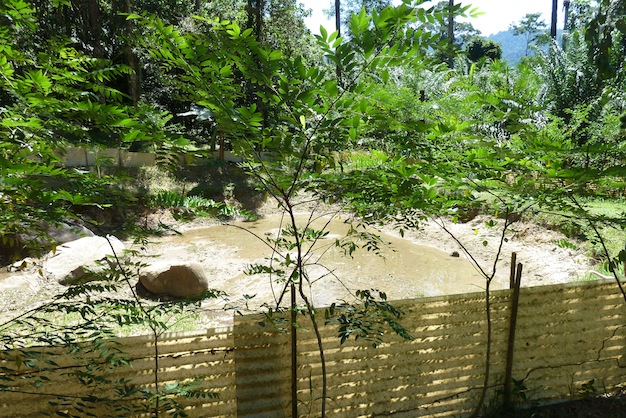
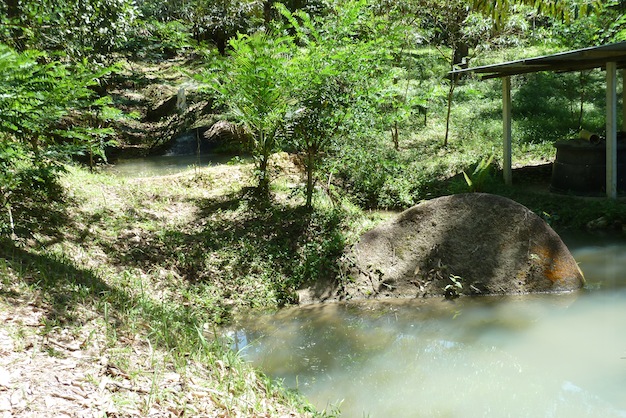
As for goat rearing, the orang asli learn to build a simple pen to house the goats and techniques for feeding and caring for their goats. The goats can be sold after they reach 1 to 2 years of age, whereby each goat can be easily sold for between RM500 to RM1500.
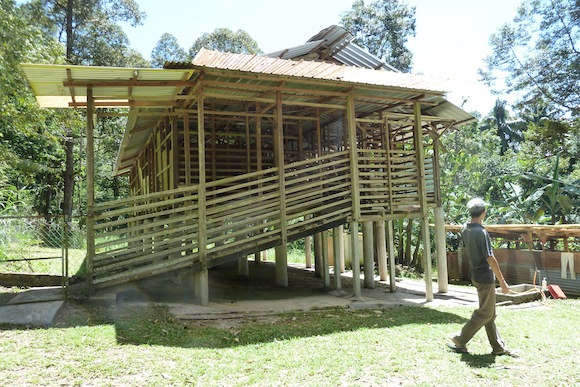
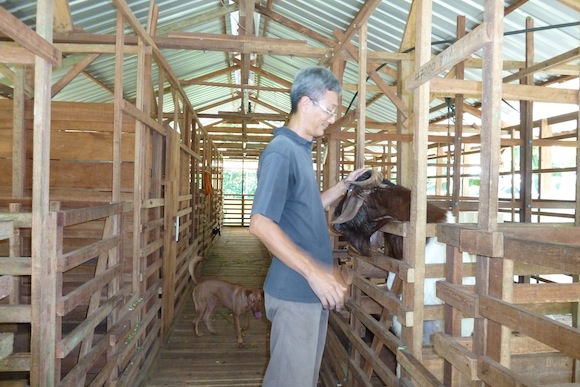
Hence, to provide these incredible trainings for the orang asli, churches partner with Malaysian CARE to send their members there. To date, churches from Perak, Selangor, Johor and Pahang have sent and sponsored the orang asli to Ladang MCare and a growing number of natives from Sabah and Sarawak too.
“The land is our main source of food,” said Adidas, a Malaysian CARE staff who is also an orang asli from Pos Tenau.“That’s why I find so much joy in improving people’s lives by encouraging them to save money and produce food sustainably. But life becomes very hard when we are forced to relocate to another place after we have become accustomed to the land.”
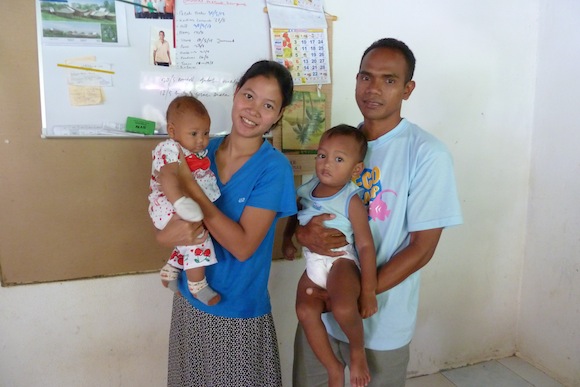
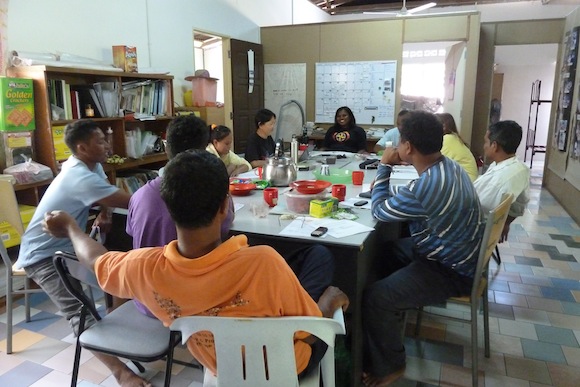
Indeed, the orang aslis need everyone’s support! With a heart for the plight of Orang Asli, Young Soon not only resides in Ladang MCare but he and his wife Pat foster three orang asli children.
“Like how God ask us to be salt and light in this world; Ladang MCare, the koperasi, and the village work are practical ways of being salt and light to the Orang Asli,” said Young Soon.
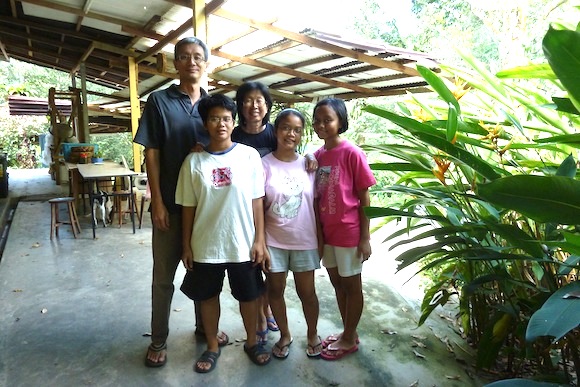
Would you like to volunteer with Ladang MCare or send some of your orang asli brothers and sisters-in-Christ there for training?
Malaysian Care is having a fundraising dinner on August 22nd for Ladang MCare and need your support! If you wish to know more, visit them at www.malaysiancare.org or email at mail@malaysiancare.org or call at 603-9058-2102.
Dear Viewers in Christ, if you find this article edifying to you, please share with your friends or loved ones by using the social media plugs (Share, Email to this article). The Lord will surely bless you as you bless others. May the Lord’s peace and love be with you.




Great work done …. can we visit & learn more.
would love to support.
Hello Tay,
Yes, Malaysian CARE definitely need your help! Please call them at the phone number listed at the end of the article.
Thank you for your support!
Adeline Lum